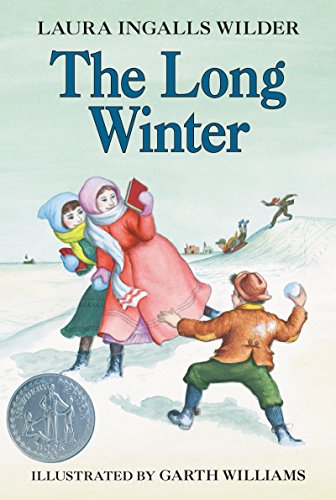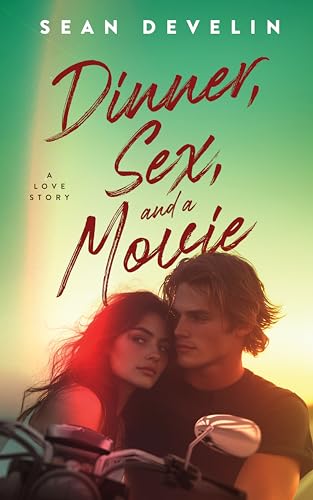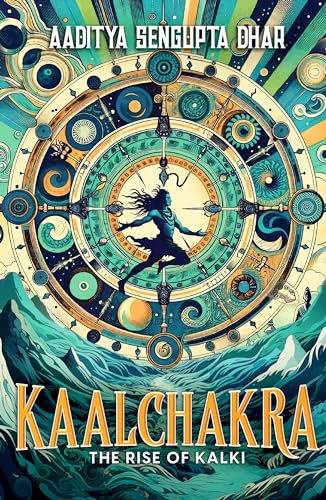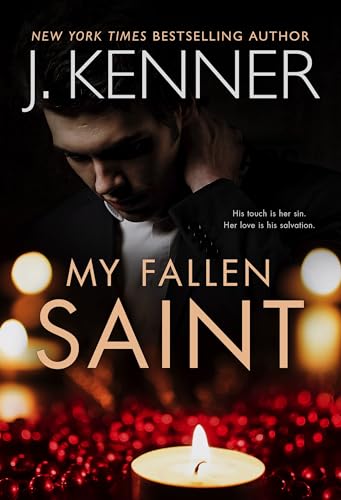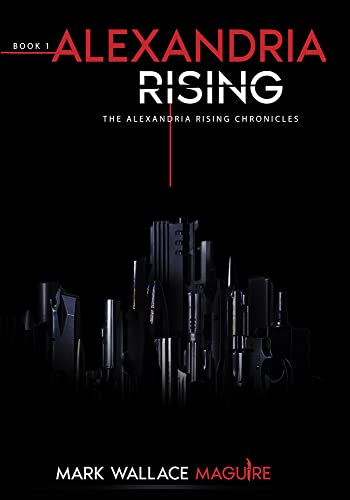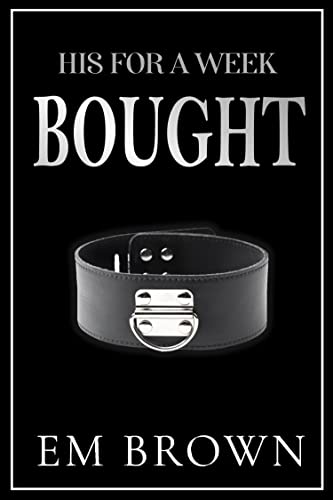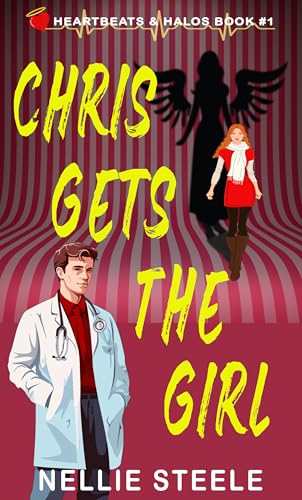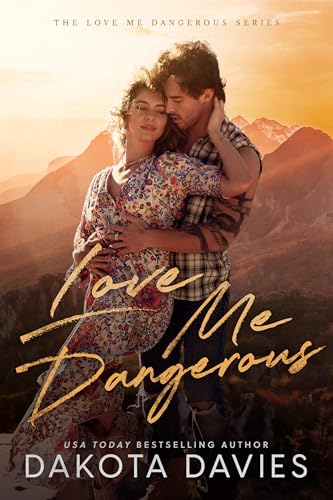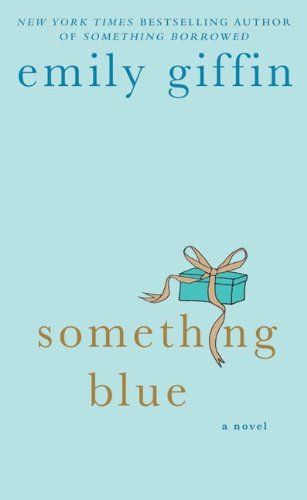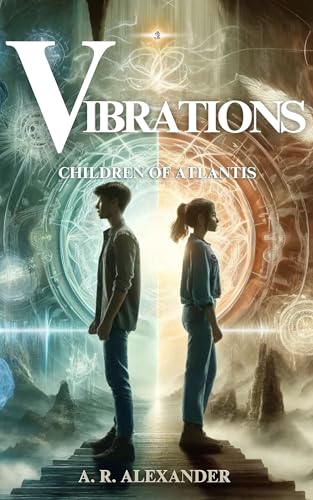Copyright 2010 by Ann Elwood and reprinted here with her permission.
Embodiment
Told by Cara Rosetti
Like that small bright spot that signals a migraine, the spot that I see in the corner of my vision and think I’ve imagined. Subtle, maybe not really there? But this is a smell. At first just a sense, then, coming to a crescendo, a rank, wild smell that assaults my nose in a way no other smell has.
Argus, a German shepherd, cocks his head, ears erect, light-struck, brook-brown eyes commanding mine. Sees that he has my attention. Then I feel a joyous rush of adrenalin. Muscles stiffly on alert. Tail wagging in short fast sweeps – I can sense it in my tailbone and feel that something is missing.
I sit still on the bench, considering what has happened. Argus has transmitted himself to me. He didn’t form words with his black lips like a dog in a commercial. He didn’t say my name, Cara. It isn’t that he barked “Woof, woof,” and I understood. He is a dog. I am a human. Before this, his way of communicating has consisted of barking, whining, and growling; smelling butts; reading and leaving urine messages on the grass and trees.
I can’t believe this is happening to me. I don’t think I’m a psychic, and though I would love to be able to communicate with animals (in fact, it has been one of my dreams), I reject supernatural abilities for humans, especially for me and especially now. It’s a surprise that Argus, who is not my dog, has gotten to me like this. More than that – it’s a shock.
I lean toward Argus as he sits there, waiting for something, I don’t know what. My old dog, Jenny, who is lying at my feet between us, looks up and us and sighs. Nothing has changed in the open of the dog park. The crows are still calling each other in the eucalyptus grove, and the dogs still run.
Argus nudges my knee with his nose. Then, sure that I am aware, he is up and away, chasing after Jax, a black standard poodle with a rocking-horse gait, who belongs to Sarah, the dog walker.
I am he. Long and smooth, feet touching down, the jouncing flag of the black tail. A darting shape coming. Sideways leap.
It (whatever the communication is) abruptly leaves me. Argus has stopped chasing Jax. He drops down into stalking position, watching a little Maltese terrier, Geek, who is trotting at the edge of the park. He charges. Yipping, Geek turns to face him, and Argus changes course, running in an undulating dash, stretched to the limit, head down, then in a head-up lunge, graceful as a gazelle. Now Jax is behind him. Then Voltaire, a half-grown yellow lab, legs barely under control, and behind Voltaire, Geek, now a whirlwind of legs and yipping and leaping. Henrietta, a boxer, intercepts them, knocking into Argus. Argus puts his head down and rolls next to Jenny, then lies on his side, panting, tongue hanging out to the ground, a grin on his face. She grins back.
Jenny has not grinned in weeks. A black flat-coated retriever, she is fifteen years old and suffering from liver cancer. I know she doesn’t have long to live so I bring her to the dog park every day, hoping she will enjoy the grass, the breeze from the Pacific, and the company of other dogs. Usually she just sleeps. And I sit on a bench, watching the other dogs play while their human companions gather in little knots. It’s a joyful scene that takes place in a world I think I can’t enter any more. Sometimes lately I have felt briefly happy here, only to remember that Jenny is old and Quentin has betrayed me.
Now Jenny rouses, sits up with difficulty, then stands, her back to me, staring off toward the Pacific. Argus scrambles to his feet and turns to face her. He fixes her with his eyes. I can see him enter Jenny with his look, as he did with me. The prince awakening the princess with a kiss? And for the first time in weeks Jenny’s tail wags. Slowly. Argus puts his paw on Jenny’s shoulder, and she relaxes back to the ground. Something has been settled.
Who or what is Argus? I wonder. He has been in the dog park for weeks, and no sign of an owner. No collar. We watch him unlatch the gate with his paw and let himself in and out. We have been feeding him and finally have named him after Ulysses’ faithful hound. He seems at home in the park, not lost. Oddly, not one of us ever suggests that we call Animal Control or look for his owner, perhaps sensing something exceptional about him. A dog, a smart dog, perhaps not “just a dog”? Is it a figment of my imagination that a dog has communicated himself to me? Has he done this with anyone else?
That night, Jenny dies. She breathes heavily, then silence. I had been considering how to know when to have her euthanized. I had a check list – can’t get up, doesn’t want to eat, doesn’t know anyone. Jenny had not exhausted it. Now I don’t have to decide. Jenny was always a thoughtful dog. Her body lies there, bereft of her, and the sight of her vulnerable ears and paws, now useless, makes me cry. My sadness is terrible, with slow tears that I think will fall forever. In the morning, I busy myself with the complications of getting someone to pick up the body and notify my vet. Then all day I abandon myself to grief.
My dog is dead.
My lover is gone.
I understand nothing.
After the sun goes down, the house seems even more empty. I can’t stand it, so I walk to the dog park. No one goes there at night, even though the park is lit by solar lanterns hanging on graceful poles like shepherd’s crooks. Argus is there, though. He meets me at the gate, his tail wagging slowly. I sit on one of the benches, and he leans his shoulder against my knee. I stroke his concave belly and, at the feel of his alive, healthy, solid body, break down in tears again. After I am done crying, he looks up at me – a direct look of connection. It’s back, so strong I want to recoil from it, but it’s stronger than I am. Muted smells, coolness in the nostrils – fishy ocean (with the wind coming from the west), a long-gone ground squirrel, cold dog urine mingled with eucalyptus. Night bird, freeway hum, a rustling on the other side of the fence interrupted. Shades of black and grey, things looming, holes of light.
“So tell me,” I say to Argus. “Where is Jenny?”
As I look into his eyes, death – its almost sweet, a horrifying odor – fills my nostrils, then my mouth. It is as shocking an invasion as first sex. Wormy earth, soft blackness. Silence. Peace.
I look away, but Argus is staring at me – I feel it in the side of my face and, unable to stop myself, turn back to him. His eyes, bottomless in the dark, fix on mine and I fall in again to the black hole, then swim up. Grass – springy, crushed under feet. Raw smell of broken leaves. Feet hitting the ground, pad, pad, pad
“What are you saying?” I ask. He ignores my question. The connection breaks. He takes off across the expanse of grass, decomposed granite, and dead eucalyptus leaves. I want to know what it feels like to run like that, but I am back alone in my own mind.
Three days later, in the evening, Jenny’s ashes in a fancy urn are delivered to the house. I put them on the mantelpiece between the flowers that Chase, Voltaire’s human, sent me and a photograph of Jenny with me and Quentin. I feel foolish because I don’t think that Jenny is in the ashes. The ashes are a relic. Still, I can’t bring myself to scatter them. Not yet.
The house is empty except for Jenny’s absence. I am the only one left.
In the photograph Quentin, Jenny, and I are a family. I look happy – lithe and fit from days running on the beach, Jenny dancing down the sand with me. I was a world conqueror in jeans then, my long brown hair in a single braid. Despite my despair over the breakup, my body doesn’t feel that different now – I am still fit (I’ve kept doing workouts), still have shiny brown hair – but when I look in the mirror I see the face of someone defeated.
It has been a year since that photograph, and three months since, in April, just as the red maple in our front yard was leafing out, Quentin – the love of my life – told me he was “done.” Nothing like this had ever happened to me before. I had often thought I was like the fairy tale child who was born with good fairy gifts. My parents were kind and loving with me and my sister and brother, but not to a fault. While I wasn’t beautiful enough to attract envy, I had clean good looks that drew people to me. Even as a kindergartner, I could draw and went on to art school after happy years at an alternative private school. My skill as an animal illustrator landed me a well-paying job with a publishing house, where I met Quentin.
Quentin reached deep under the surface of my lovely, shallow-seeming life. I felt that I had been dormant before. He seemed to understand parts of me no one else did. My family could not fathom what I saw in him – his goatish “rough-beast” looks, his taciturn personality. They were astounded when I told them how I liked to make little braids in the long black hair on his arms and call them his “tiny dread locks.” “I didn’t know you had that kind of imagination,” my father said, sounding disgusted. “He’s my Heathcliff,” I replied. He was, I now realize, that dangerous man-mentor that so many women in their twenties fall in love with. Quentin told me he adored me, and I believed him. It was for him I learned computer graphics, and, though I felt stifled by the cut-and-dried assignments, I thought I was building something with him when together we founded a little graphics company, using my family’s money (“that’s your inheritance,” my father said).
Now, I think of Quentin as the gift from the bad fairy, the one who negates all the others – or to use other metaphors, the other shoe that finally dropped, the troll under the bridge, his bridge where I have trip-trapped. “Done?” What did he mean by that? “You’re just too white-bread for me,” he said, pushed to the wall. Now the business is on the rocks – he had no idea how to keep books or deal with clients – and his things are gone from our little house. I am left without my lover and self-esteem.
The worst part is that I have lost my faith in my ability to read people. Quentin seemed so trustworthy. Because he said so little, I assumed that that little was true, and all there was. In spite of all that, aware it will never work, I want him back. He will reactivate me, I think. I am like a scene left on “pause” – something or someone needs to push the “resume” button. The mental impulse to move on is there, but I am paralyzed. I no longer understand the world.
I had clung to Jenny like a lifeline, but now she also is gone.
The next day, I go back to the dog park. I can’t stay away – even without Jenny, it is my community. And I want to see Argus.
As I walk toward the gate, Rosie hurries to catch up with me. “I’m so sorry about Jenny, Cara,” she says.
“Thanks,” I reply, knowing I should say more, but I can’t. Rosie means well. A fiftyish, obese woman with the smile of a girl and hair of various unreal colors, she is a valued member of the dog park group because she understands dogs, never stopping her teacup chihuahua, Zapata, from wrestling with the big dogs. We forgive her for dressing Zapata in little outfits on holidays – a bunny costume at Easter, a witch at Hallowe’en, even a turkey at Thanksgiving.
Voltaire, the lab, runs to greet us as I lift the gate latch, and Zapata explodes into the park, then parades around like a tiny king. The other dogs do not eat him alive, though they can.
Rosie stands watching the dogs, smiling, leash hanging from her hand. “You should think about getting another dog,” she says.
“Not now,” I answer but I think, not ever. The pain of losing Jenny is almost more than I can bear. I can’t imagine replacing her, though watching other dogs soothes me. They are lively that day. Henrietta, rears up to face Argus – they paw at each other’s shoulders, then sink to the ground and roll around. After he gets up, Argus leads several other dogs on a chase around and around the park, feinting when he is close to being caught, turning fast, leading them the other way. He finally stops to stand protectively beside Stretch, Jane’s long-legged mutt, who has been having trouble with his hindquarters. I shut my eyes and imagine what it would be like to be one of them: long, loping run: that ecstatic moment when the movement becomes effortless. I open my eyes, and Argus is there, by my side, panting.
When I go to join the knot of dog park regulars over by the trees, Argus walks along sedately by my side. We pass a pile of dog poop, and the smell rises up ghost-like and strikes me in the nostrils, so rank it makes me sneeze. Coming up to Rosie, on the edge of the group, I am almost overwhelmed by the smell of her perfume: White Shoulders, I think, then lose the name in a cloud of strong, nose-stinging artificial odor. Dogs, sweet and rank. Milk on Emma, Jane’s three-year-old. Blood on the retired builder, Joe, who wears a tiny piece of tissue on a facial cut. I smell underarm odor faintly masked with metallic antiperspirant on The Tattooed Lady, a checker at Target, who, in spite of her arthritis, uses a chucker to throw one ball after another for her Doberman, Donner. A hint of ground squirrel, a rabbit or two. An impulse to eat the long chewy grass around the edge of the fence. The dry taste of dog biscuits, with a touch of metal-machine, animal bone, and blood in them, and some rich fat. I wonder if I am losing my mind.
It consoles me to play human as I pass out thank-you notes to people for the food, flowers, and letters they gave me in sympathy for Jenny’s death. At first they try to cheer me up, but after a while, getting nowhere, they begin to talk about veterinarians and dog food, then to tell dog stories. Laughing, Jane tells about the time Stretch ate the rib steak for a fancy dinner, then Joe counters with the story of how Geek threw up a dead mouse on the living room rug. Sarah, the dog walker, who has brought Henrietta and shaggy Teddy, has an even better story: Teddy meeting her when she opened the gate to his yard then dropping a dead rat at her feet as a sort of present. It’s about then I decide to leave the group. I have no dog now. I have nothing to add to this.
I see Chase sitting alone on a bench and I gather myself up and saunter over to sit next to him. Argus strides at my side. I think of Chase as one of those guys you can imagine sitting crosslegged on a carpet in a yurt eating a sheep’s eye and acting gracious about it. He’s a cosmopolitan – with a long, privileged, responsible heritage. His clothes drape his body as if they’re custom-made, but he buys them at the Gap. When I once teased him about having a last name for a first name, he said quite seriously that Chase was a family name, his middle name was Brian. I wanted to joke about his possible relationship to the Chase Manhattans, but never did. I don’t quite trust him. That doesn’t mean much – I don’t trust anyone right now.
Argus sits in front of Chase, but looks at me. He has a smile in his eyes and says nothing. With Chase there, communication between us seems to have shut down. I can see its possibility behind the metaphorical glass, but it is not accessible to me.
“I appreciate the flowers,” I say, handing Chase a thank-you note.
He nods. “It’s a death like any other. As sad as if a human dies. At least to you. It deserves recognition. I know it’s hard.”
“Yes.”
“It looks like Argus has taken a shine to you.” He puts the thank-you note in his shirt pocket.
“It’s sympathy. He knows I’m grieving. He’s smart, isn’t he?”
“Oh, yes. All dogs with herding ancestors are. Too smart sometimes.” As he speaks, his long-fingered hand rests on Argus’s head, fiddling with his ears. “So, Cara. Tell me. What god do you think presides over Paradise Park? Do you think it’s a rich entrepreneur, who wants to remain anonymous? That’s what Joe thinks.”
“One thing I know – it’s a not a metaphysical being,” I reply. I watch Teddy spin in the pond, throwing off drops in a state of ecstasy. Then for the first time in months, my fingers itch for a pencil, and I wonder where my old sketch pad is. How would I draw the spin, the water flying, the dog’s joy? Would Sarah agree to let me draw Teddy?
“How would you know that?” Chase asks.
“What? Sorry, I was distracted.”
“That it’s not a metaphysical being,” Chase says.
“Oh. Because there is no such thing.”
“Not even a spirit of the trees? Didn’t you tell me you were a tree-hugger as a child?”
“Stop teasing me, Chase. You know what I mean.” I relent. “This place does have a kind of magical peace about it.” I survey the wide swatch of grass surrounded by the graceful fence. “It reminds me of the convent where my mother used to take my sister Grace and me to visit my Aunt Julia. Grace hated it there. ‘It smells old,’ she’d say.”
“What did she mean?”
“Oh, musty clothes, old stone. It was dark inside. I liked it, though. I liked ringing the bell outside the door, liked hearing the door creak open on its hinges, liked going inside where not everyone was allowed to go. It felt safe behind the walls. In the center was a courtyard with a garden. A fig tree. Paths that wound around. The nuns went there to work in the dirt or to meditate. Grace and I would never have thought to run there.”
Chase says, “And the dog park is like the convent how? Besides the fact it’s enclosed?”
I lie: “We’re all equal in our old clothes, the way the nuns were in their habits.”
Chase says, “Be careful. The analogy is going to break down. I know you go home and put on your ball gown.”
“Stop it!” I say. “I’m serious.”
“About what? Convents and dog park analogies?”
I think of Aunt Julia, her white face remote but kind in the circle of her wimple. Once, when she came out in the courtyard to walk with Grace and me, I blurted out, “I love it here, Aunt Julia. It’s safe!”
An ironic grin spread over Aunt Julia’s face. “No, it’s not, Cara. Wickedness can enter even here.”
Is Argus wicked? Like one of those spirit dogs that enters a body as a demon? I pretend to change the subject. “Some dogs have special abilities,” I say.
“Like what, Cara?”
“Oh, communication skills,” I reply, sounding lame, even to myself. “With some of them you can almost tell what they’re thinking. Like Argus.” Argus’s tongue lolls out of his mouth – is he laughing?
Chase leans back and crosses his long legs. The crease in his jeans falls precisely over his right kneecap. “So you think you can have a special pipeline into Argus’s brain?” To me, now over-sensitive, he sounds condescending.
I recoil and retract: “Not really,” I reply, irritated. I wait a bit, then, unable to stop myself, say, “It’s weird. I seem to have a heightened sense of smell lately.”
“Why is that, do you think?” he asks.
“I don’t know. Suddenly I can smell people. Some smell of sweat – much of it oily, some acid. If they have any little wounds on them I know it. I smell them the way a dog does. . .” I catch a wary look on his face, but I go on. “Anyway, sometimes I can smell blood, and it smells good.”
“Maybe you’re a vampire,” he replies, smiling.
I ignore that. “It doesn’t matter what perfumes or deodorants people wear – I smell the underlying odor, the odor of them. Some stink.”
“And what do I smell of?” He is flirting with me. He has never done that before.
“Oh, you,” I say, blushing, “Of coffee with a whiff of geranium.”
I am already regretting that remark when, before I can say more, Henrietta, the boxer, clambers up my body and plants a huge slobbery kiss on my lips. I want to kiss her back – the moment with Chase has turned awkward. Sarah runs up, too late, apologizing, waving the washcloth she brings with her for such emergencies.
“Maybe you’re spending too much time here,” says Chase, after I have wiped my face and given the washcloth back to Sarah. “Maybe it’s too depressing for you to be coming here so soon after Jenny’s passing.”
“I don’t think so.” A nervous shiver goes through my body, relieved that he hasn’t realized I am truly inside a dog’s mind. I know what I would think if someone were to tell me what I have been thinking of telling him.
Argus walks off toward the eucalyptus grove.
A silence falls between us, and Chase, perhaps seeing how closed my face is, stands and stretches. “I better check on Voltaire.” He heads off to the side of the park where Voltaire is romping with Henrietta.
I go to sit beside Argus, who is lying in a bare place where the earth is cool under the exposed roots of a eucalyptus, and hold him around the ribs, wondering about his past life. Does he remember his mother’s milk? Did anyone ever beat him? Has he lived on the streets? Is he running away from something? How does he feel when he runs rejoicing in circles around the park? Was there something in his past that gives him his extraordinary ability? He slumps away from me, relaxed against the tree roots, and I understand that his past does not concern him. Like so many dogs, he has transcended it, and as Cesar Millan says, he lives in the moment.
“Why did you do this to me?” I ask him. “What if I made you see like a human? Colors? They would dazzle you like bright lights, pierce your eyes, give you a headache.” Argus cocks his head and doesn’t reply. “It’s a useless ability, thinking and feeling like a dog. No one will believe me, or if they do they’ll think I’ve cracked up.”
An image of me in pieces fills my head. Argus’s face is full of concern as if he has understood my words. Maybe something has gone wrong in my brain, and I have become one of those people whom Oliver Sacks studied when he wrote The Man Who Mistook His Wife for a Hat. Just a little change, something growing that shouldn’t, pressing against a synapse. Then I wonder how, if I were a dog, I would draw me and Argus. What would a dog-made sketch look like? If a dog had fingers. . .
The gate rattles. I look up, and I am frozen: Quentin. He stands in the space between the outer and inner gate – a dark hulking shadow. Lurking. It’s always at times like this, when I’ve let down my defenses, that he appears. What is he doing here? He never came to the park with me and Jenny. “Jenny’s your dog,” he would say. When he sees that I have noticed him, he opens the inside gate and enters the park. He has a dog with him – a red chow with a prong collar. He immediately lets the dog off the leash, then strides up to me. I know that stride – like his strong handshake, it comes from long practice.
He looks straight into my eyes, then at Chase and Rosie, who have come to stand by me. I can see him wondering what to say that is provocative. He’s uneasy. Then a crow rises from a eucalyptus and caws. It gives him a subject: “Lots of crows here.”
“Yes. More than usual this year,” Chase says.
Quentin smiles. I know that smile. “They’re vermin. We have a solution for them back in the Midwest.” He pauses, then adds, “We shoot them.”
Chase looks appropriately aghast. I say: “This is Quentin. He likes to be a gadfly. He’s also a farm boy. They have a different attitude toward animals.” I have dropped into the old habit of explaining Quentin.
Quentin turns to me. “I heard about Jenny.”
“How did you know she died?” I don’t want him to know. Jenny’s death belongs to me and Jenny, not to him. It feels like an invasion for him to know.


